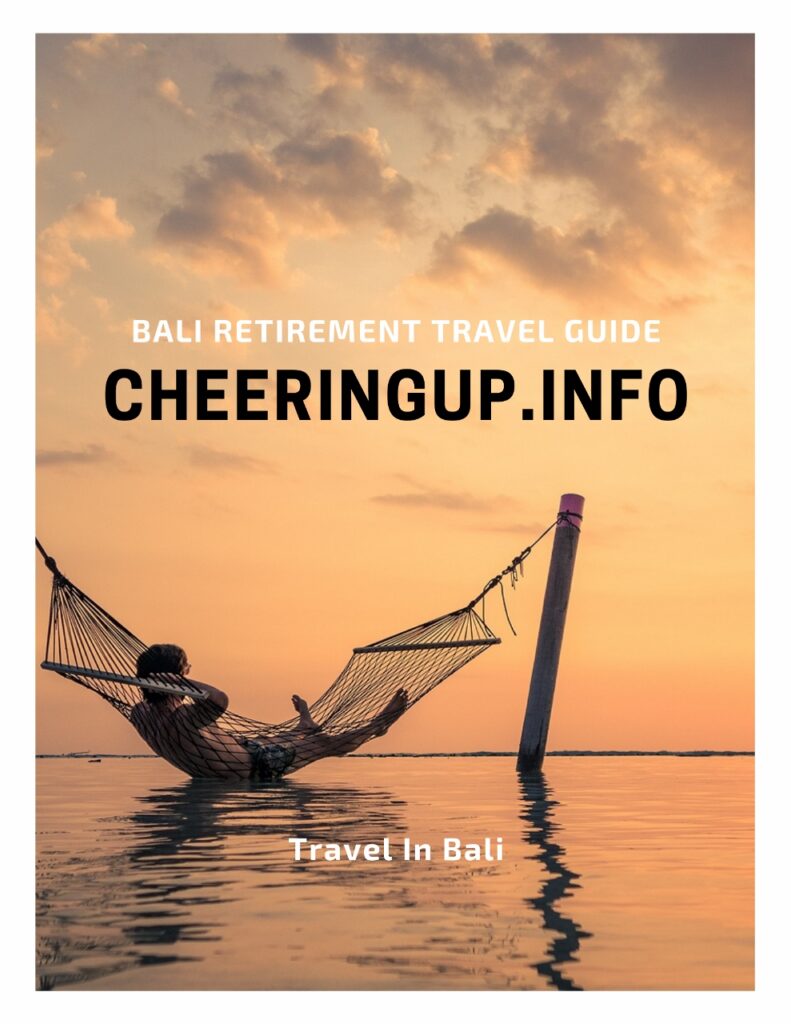How can business leaders inform their decisions on doing business in Indonesia
Understand the business opportunities and threats from international trade with Indonesia. Discover the best Indonesia has to offer you. See more of Indonesia for less.
Indonesia’s Best: Top 20
20 best things to do and see in Indonesia
Discover the Hidden Gems of Indonesia: 20 Must-Visit Destinations for Adventure Seekers and Culture Enthusiasts
Indonesia is a beautiful and diverse country made up of thousands of islands, each with its own unique culture, history, and natural beauty. From stunning beaches to ancient temples, Indonesia offers a wealth of experiences for travelers. Here are the top 20 best things to do and see in Indonesia.
- Visit Bali: Bali is Indonesia’s most famous island, known for its stunning beaches, lush rice paddies, and vibrant culture. It is a must-visit destination for anyone traveling to Indonesia.
- Explore Borobudur Temple: Borobudur is an ancient Buddhist temple located on the island of Java. It is the world’s largest Buddhist temple and a UNESCO World Heritage Site.
- Hike Mount Bromo: Mount Bromo is an active volcano located in East Java. It is a popular hiking destination, offering stunning views of the surrounding landscape.
- Relax in Gili Islands: The Gili Islands are a group of three islands located off the coast of Lombok. They offer some of Indonesia’s best beaches and are a great place to relax and unwind.
- Visit Komodo Island: Komodo Island is home to the famous Komodo dragons, the largest lizards in the world. It is also home to beautiful beaches and stunning landscapes.
- See the Orangutans in Borneo: Borneo is home to the endangered orangutan. Visitors can take a boat trip down the river to see them in their natural habitat.
- Dive in Raja Ampat: Raja Ampat is a group of islands located off the coast of Papua. It is known for its incredible marine life, making it a popular destination for divers.
- Climb Mount Rinjani: Mount Rinjani is the second highest volcano in Indonesia, located on the island of Lombok. It offers challenging hiking trails and stunning views of the surrounding landscape.
- Visit Yogyakarta: Yogyakarta is a city on the island of Java known for its rich cultural heritage. Visitors can explore its ancient temples, palaces, and museums.
- Explore the Tana Toraja Region: The Tana Toraja region on the island of Sulawesi is known for its unique culture and traditional houses. Visitors can explore the region’s stunning landscapes and learn about its rich history.
- See the sunrise at Mount Batur: Mount Batur is an active volcano located in Bali. Visitors can hike to the top to see the sunrise and enjoy stunning views of the surrounding landscape.
- Explore the Dieng Plateau: The Dieng Plateau is a highland region in Central Java known for its beautiful landscapes and ancient temples.
- Visit the Prambanan Temple: The Prambanan Temple is an ancient Hindu temple located on the island of Java. It is a UNESCO World Heritage Site and one of Indonesia’s most important cultural landmarks.
- Relax in Ubud: Ubud is a town in Bali known for its beautiful rice paddies, art galleries, and spiritual retreats. It is a popular destination for those looking to relax and unwind.
- See the Tegalalang Rice Terraces: The Tegalalang Rice Terraces are a series of rice paddies located in Bali. They offer stunning views and are a popular destination for photographers.
- Visit the Baliem Valley: The Baliem Valley is a remote region in Papua known for its unique culture and stunning landscapes. Visitors can explore the region’s traditional villages and learn about its rich history.
- See the Jatiluwih Rice Terraces: The Jatiluwih Rice Terraces are a UNESCO World Heritage Site located in Bali. They offer stunning views of the surrounding landscape and are a popular destination for hikers.
- Explore the Banda Islands: The Banda Islands are a group of small islands located in the Maluku Province. They offer some of Indonesia’s best diving and snorkeling opportunities, as well as beautiful beaches and stunning landscapes.
- Visit the Ujung Kulon National Park: Ujung Kulon National Park is located on the western tip of Java and is home to a variety of wildlife, including the endangered Javan rhinoceros. Visitors can explore the park’s beautiful landscapes and learn about its conservation efforts.
- Experience traditional Indonesian cuisine: Indonesian cuisine is known for its bold flavors and use of spices. Visitors can try dishes like nasi goreng (fried rice), rendang (spicy beef), and satay (grilled meat skewers) at local restaurants and street food stalls.
In conclusion, Indonesia offers a wealth of experiences for travelers. From stunning beaches to ancient temples and unique cultural experiences, there is something for everyone in this diverse and beautiful country. Whether you’re looking to relax and unwind or explore new adventures, Indonesia is a destination that should be on every traveler’s bucket list.
Indonesia Business News Indonesian Lifestyle and Indonesia Business Reviews
Ubud Silversmith in Ubud, Bali, is a gem for those interested in traditional Balinese craftsmanship. The studio offers a unique opportunity to learn the art of silver jewelry making from skilled local artisans. Visitors can participate in hands-on workshops, creating personalized pieces while gaining insights into the intricate techniques passed down through generations. The staff is friendly and knowledgeable, ensuring a memorable and educational experience. The finished jewelry makes for a unique souvenir, reflecting Bali’s rich cultural heritage. A visit to Ubud Silversmith is a must for anyone looking to explore Bali’s artistic traditions.

Enter code #IndonesiaMagazine
Indonesia Online Exhibition Marketplace
Find out the latest news for Indonesia. Buy and sell more in Indonesia online. Understand business risks in Indonesia better.
- Want to list your business in our online Indonesia business directory?
- Are you running deals discounts or special offers in Indonesia online you want more people to know about?
- Could you write an advertorial to advertise your business in Indonesia and inform our readers?
What are peoples opinions about Indonesia past present and future? Read and watch business reviews for businesses trading in Indonesia and that want to export more from Indonesia.

Free Indonesia Online Magazine
Get the latest lifestyle and business news opinions and reviews from Indonesia. Whats hot and whats not in Indonesia? Tell people about life living and business in Indonesia.
Want to have your say on Indonesia lifestyle and business?
The Sacred Monkey Forest Sanctuary in Ubud, Bali, is a must-visit for nature and animal lovers. This lush, serene forest is home to hundreds of playful macaques, ancient temples, and beautiful moss-covered statues, offering a unique blend of natural beauty and cultural heritage. The monkeys are curious and entertaining, but visitors should be cautious with personal belongings, as the monkeys can be quite cheeky. The sanctuary provides a peaceful escape and a fascinating glimpse into Balinese spirituality and ecology. A perfect spot to experience Ubud’s natural charm and sacred ambiance.

Become Indonesia Citizen Journalist. Reach more people interested in your views on life and business in Indonesia with BusinessRiskTV
Subscribe to BusinessRiskTV online Indonesia marketplace magazine for free alerts bulletins and reviews to your inbox
Indonesia Life Living Lifestyle Magazine
Whats great about Indonesia lifestyle? Find out what not to miss in Indonesia. What are best things to do in Indonesia? Grab best deals discounts and special offers in Indonesia.
Promote and market your business in Indonesia on BusinessRiskTV for 12 months
Open Stage Pura Dalem Ubud offers a captivating cultural experience in the heart of Ubud, Bali. Nestled within the sacred grounds of Pura Dalem, the open stage is renowned for its traditional Balinese dance performances, including the mesmerizing Kecak and Fire Dance. The venue’s intimate setting allows for an immersive experience, surrounded by intricate temple architecture and lush tropical gardens. The performances are beautifully choreographed, showcasing the rich heritage and vibrant artistry of Balinese culture. A must-visit for anyone seeking an authentic taste of Bali’s artistic soul.


Find out how to promote your business locally and globally. CLICK HERE or email editor@businessrisktv.com entering code #IndonesiaMarketing.
Put your products or services in front of new customers already interested in your type of business offering before your competitors do.
Link into your existing sales process direct from BusinessRiskTV or use our eCommerce solutions to increase your sales cash flow and profit
Increase the sources of your revenue more sustainably. Grow your business in Indonesia faster with BusinessRiskTV.
What is best time to visit Indonesia?
The best time to visit Indonesia depends on the specific regions you plan to explore, as the country experiences diverse climates due to its archipelagic nature. However, in general:
-
Dry Season (April to October): This is considered the best time to visit many parts of Indonesia, including popular destinations like Bali and Java. The weather is generally dry, and you can enjoy outdoor activities with less rainfall.
-
Wet Season (November to March): The wet season brings higher humidity and more rainfall, but it can also be a good time to visit certain regions, such as Sulawesi and Sumatra. Rainforests are lush during this time.
Keep in mind that Indonesia has different climatic zones, so conditions may vary. It’s advisable to check the specific weather patterns for the particular islands or areas you plan to visit. Additionally, popular tourist destinations may be busier during the dry season.
How long can a UK resident stay in Indonesia without a visa?
UK residents have two options for entering Indonesia without a visa, depending on the desired length of stay:
1. Visa on Arrival (VOA):
- Allows a stay of up to 30 days.
- Can be obtained upon arrival at designated Indonesian airports or seaports.
- Costs around USD $35 (subject to change).
- Can be extended for an additional 30 days at a local immigration office (fees apply).
2. Visa Exemption:
- Permits a stay of up to 30 days.
- Applies to tourism and business purposes only.
- Requires a valid passport with at least 6 months remaining validity from your arrival date in Indonesia.
Important Notes:
- Double-check the latest visa information with the Indonesian authorities before your trip. You can find details on the official Immigration website.
- Visa on Arrival and visa exemption don’t allow extensions beyond the permitted duration.
- If you plan to stay longer than 60 days, you’ll need to apply for a visa in advance through the Indonesian Embassy in London.
How do you get a visa exemption?
You don’t actually apply for a visa exemption for Indonesia. Here’s what you need to do to enter Indonesia visa-free:
- Hold a valid passport: Your passport must be valid for at least 6 months beyond your intended departure date from Indonesia.
- Meet the purpose of stay: The visa exemption is for tourism and business purposes only.
- Have onward travel documentation: While not always explicitly stated, it’s recommended to have a confirmed return ticket or onward ticket to another country to demonstrate your intention to leave within the 30-day visa-free period.
- Meet other requirements: There may be additional requirements depending on your nationality or current health situation. It’s always best to check the latest information with the Indonesian authorities before your trip. You can find details on the official Immigration website.
Basically, if you meet the criteria above, you’ll be granted a visa exemption upon arrival in Indonesia. The immigration officer will stamp your passport upon entry, indicating your allowed period of stay.
The Green City of the Future Today: Singapore – Inspiring or Idealistic?
In a world grappling with climate change and environmental degradation, the concept of a “green city” has become more than just a utopian vision. Singapore, a bustling metropolis known for its towering skyscrapers and cutting-edge technology, is boldly aiming to be the world’s greenest city. But is their ambition inspiring or idealistic? Let’s delve into Singapore’s innovative approaches to urban sustainability and explore if other cities can replicate their success.
Greener Risk Management: What Does it Mean in 2024?
Before venturing into the world of sustainable cities, let’s address the concept of greener risk management in 2024. Traditionally, risk management focuses on financial and operational threats. However, the growing impact of climate change has introduced a new dimension: environmental risk.
Greener risk management involves proactively identifying, assessing, and mitigating threats posed by environmental factors like:
- Climate Change: Rising sea levels, extreme weather events, and resource scarcity all pose significant risks to businesses and communities.
- Pollution: Air and water pollution can harm public health and negatively impact business operations.
- Resource Depletion: Overconsumption of natural resources can lead to price volatility and supply chain disruptions.
Pros and Cons of Green Risk Management for UK Consumers
As consumers in the UK embrace a more sustainable lifestyle, adopting greener risk management practices offers several benefits:
Pros:
- Reduced Environmental Impact: By making choices that consider the environmental footprint, consumers can contribute to a cleaner and healthier planet.
- Cost Savings: Investing in energy-efficient appliances and sustainable products can lead to long-term cost savings.
- Improved Health: Reducing exposure to pollution and supporting sustainable practices can benefit your health and well-being.
- Future-Proofing: Consumers who embrace eco-conscious choices may be better positioned for a future where environmental responsibility is paramount.
Cons:
- Higher Initial Costs: Some sustainable products or services may have a higher upfront cost compared to traditional options.
- Limited Availability: Finding eco-friendly alternatives might be more challenging in certain areas.
- Greenwashing: Consumers need to be aware of “greenwashing,” where companies make misleading claims about their environmental practices.
Navigating the Green Path: BusinessRiskTV.com Business Risk Management Club to Your Rescue
While the benefits of greener living are evident, navigating the complexities of sustainable choices can be challenging. This is where the BusinessRiskTV.com Business Risk Management Club comes in.
This exclusive club offers UK consumers a wealth of resources to help them make informed decisions regarding environmental risk management. Here’s how the club empowers you:
- Expert Advice: Gain access to insights from industry leaders and environmental specialists on adopting sustainable practices in your daily life.
- Risk Identification Tools: Learn about tools and strategies to identify and assess environmental risks associated with your consumption habits and investment choices.
- Sustainable Living Resources: Discover tips on reducing your carbon footprint, choosing eco-friendly products, and supporting businesses committed to sustainability.
- Community Support: Connect with a network of like-minded individuals passionate about building a greener future.
By joining the BusinessRiskTV.com Business Risk Management Club, you gain invaluable knowledge and tools to navigate the path towards a more sustainable lifestyle.
Now, Back to the Green City of the Future: Singapore’s Story
Singapore, a densely populated island nation, faces unique challenges in its quest for sustainability. However, their innovative solutions are captivating the world. Let’s explore some of their key initiatives:
- Vertical Greenery: Lush gardens cascade down skyscrapers, transforming buildings into “living walls” that provide natural air filtration and temperature regulation.
- Gardens by the Bay: This futuristic park showcases “Supertrees,” massive vertical structures covered in plants, serving as solar energy collectors and illuminating the gardens at night.
- Car-Lite City: Singapore prioritises public transportation with efficient bus networks and underground train systems, reducing reliance on private vehicles.
- Waste Management: Singapore implements advanced recycling and waste-to-energy programs, diverting waste from landfills.
Inspiration or Idealism? The Road Ahead for Green Cities
Singapore’s green city ambitions are undoubtedly inspiring. However, replicating their successes requires careful analysis.
Challenges for Other Cities:
- Cost and Infrastructure: Implementing large-scale green initiatives requires significant investment in infrastructure and technology.
- Urban Sprawl: Cities with sprawling suburbs face challenges in integrating sustainable transportation and green spaces.
- Public Awareness: Shifting consumer behavior and promoting an eco-conscious lifestyle requires sustained public education efforts.
Are Green Cities the Future?
Despite the challenges, the benefits of green cities are undeniable. Imagine a world where cities are not just centres of commerce and innovation but also hubs of environmental sustainability, where residents enjoy a high quality of life while minimising their ecological footprint.
While Singapore’s journey is remarkable, it’s essential to recognize that a one-size-fits-all approach may not be feasible for every city. Local contexts, climate, and resources need to be considered when developing tailored green strategies.
The Role of Technology
Technology plays a pivotal role in achieving urban sustainability. Singapore’s success is underpinned by its embrace of digital solutions, including:
- Smart Grids: Optimising energy distribution and consumption.
- Data Analytics: Monitoring environmental performance and identifying areas for improvement.
- Green Building Certifications: Encouraging sustainable construction practices.
Other cities can leverage similar technologies to drive their green agendas.
Conclusion: A Greener Future is Within Reach
Singapore’s aspirations to become the world’s greenest city are undoubtedly ambitious, but they also serve as a beacon of hope for other urban centers. By embracing greener risk management, investing in sustainable infrastructure, and fostering a culture of environmental responsibility, cities worldwide can create healthier, more resilient, and thriving communities.
The path to a greener future is not without its challenges, but with innovation, collaboration, and a shared commitment to sustainability, we can transform our urban landscapes into thriving ecosystems that benefit both people and the planet.
Join the BusinessRiskTV.com Business Risk Management Club today and be part of the solution. Together, we can build a greener and more resilient future.
BusinessRiskTV.com Business Risk Management Club
Disclaimer: This article is intended for informational purposes only and does not constitute financial or professional advice. It is essential to consult with qualified experts for personalised guidance on risk management and sustainability matters.
Tags Keywords: green city, sustainable city, Singapore, urban sustainability, environmental risk management, climate change, green technology, green living, eco-friendly, sustainable development, green business, business risk management.
#BusinessRiskTV #Indonesia #IndonesiaRisks #IndonesiaJournalist #IndonesiaMagazine #IndonesiaOnline #IndonesiaMarketplace #IndonesiaDirectory #IndonesiaBusiness #IndonesiaMarketing #IndonesiaEconomy #IndoneisaNews #IndonesiaReview #IndonesiaReports
Discover better ways to protect and grow your business with BusinessRiskTV
BusinessRiskTV Indonesia Online Exhibition Marketplace Magazine

Business Risk Management Club